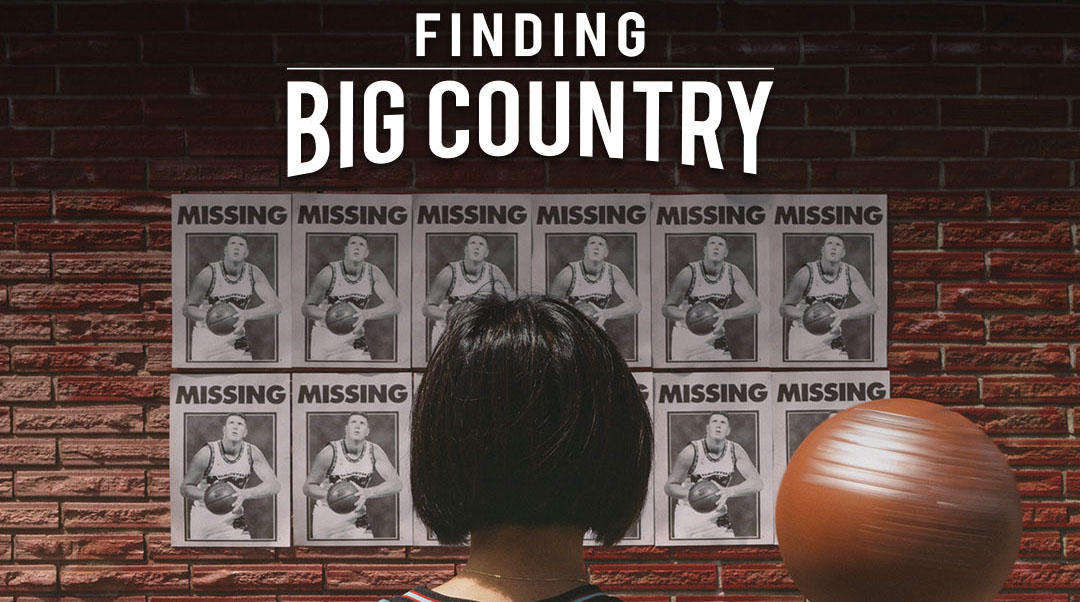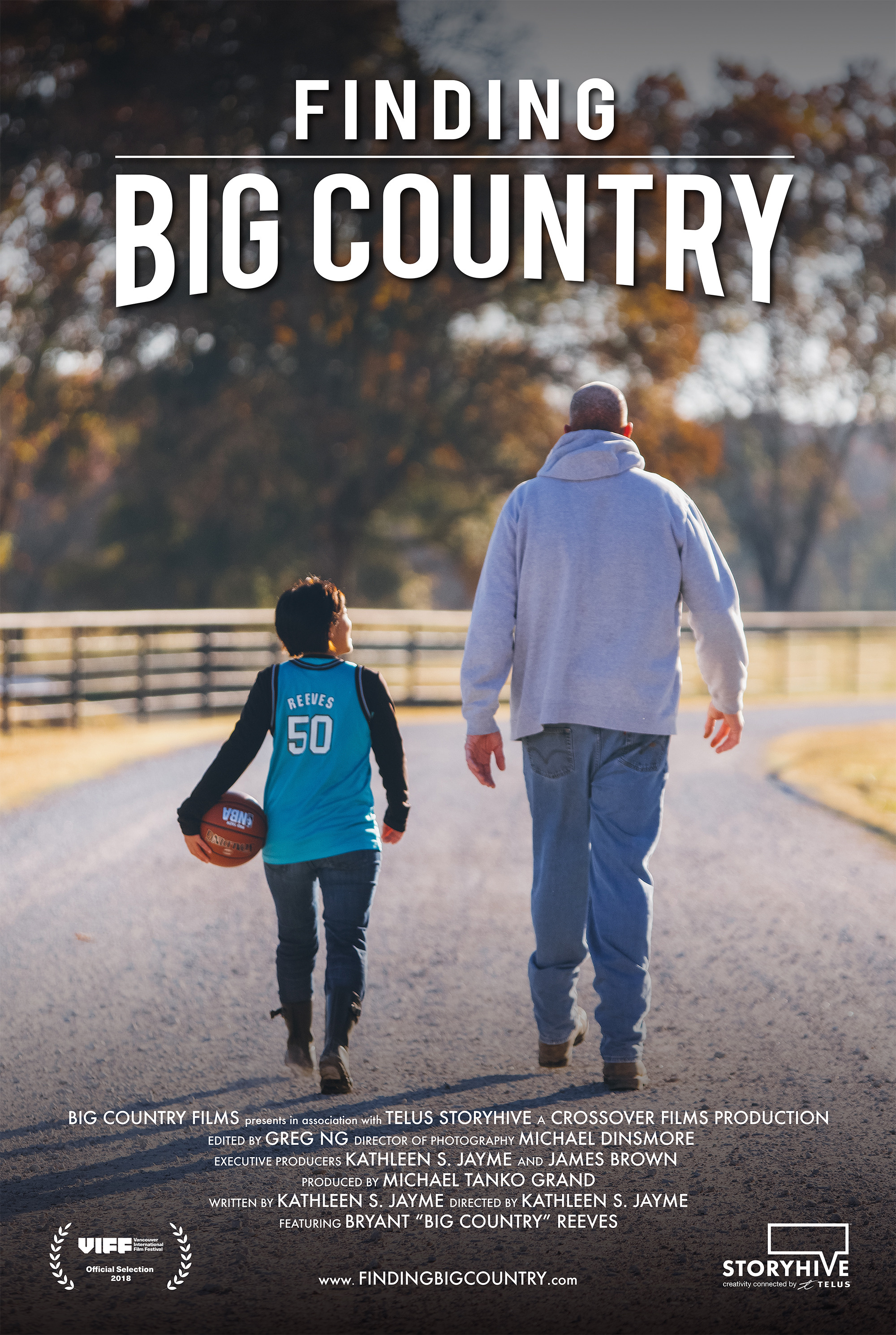How Grizzlies Superfan Kat Jayme Finally Found Bryant ‘Big Country’ Reeves

Not necessarily known for his elusiveness as a basketball player, former Vancouver Grizzlies big man Bryant “Big Country” Reeves has been hard to find in retirement. A skilled center who was Vancouver’s first ever draft pick, Reeves had a polarizing career for the team that eventually moved to Memphis. He showed promise his first couple years in the NBA before injuries eventually derailed his career—but only after he signed a six-year, $61.8 million extension that was maligned by many of the team’s fans.
Reeves may have never been a star, but he capably went toe-to-toe with many of the NBA’s all-time seven-footers, battling on the block with the likes of Shaquille O’Neal, Hakeen Olajuwon, and Patrick Ewing. After multiple back injuries prevented Reeves from continuing to play when the Grizzlies relocated, he faded into the shadows, rarely granting interviews, and disappearing rather impressively for someone with his size.
That’s when Kat Jayme showed up.
Jayme, a filmmaker born and raised in Vancouver, was a childhood fan of the Grizzlies, and Reeves was her favorite player. She was devastated when her team left town, and frustrated with the lack of memory the franchise even existed. Jayme—who says she’s practically always had a camera in her hands since high school—had long wanted to make a movie about the Grizz, and her curiosity grew when she realized how few people had been in contact with the player she deemed Vancouver’s first basketball star.
The result is Finding Big Country, a documentary that premiered at the end of September in Jayme’s hometown. The film tells the story of the Grizzlies, Reeves, and Jayme’s search for the big man in his home state of Oklahoma. The movie is a nostalgia trip for fans of ‘90s basketball, and it’s carried by Jayme’s genuine fanhood for Reeves. It’s an endearing documentary, and clearly a passion project.
The film took over two years to put together, but the work was well worth it for Jayme. The Grizzlies superfan finally does find Big Country, and the moments they share together are easily the film’s most heartwarming. And viewers will quickly learn that just because Reeves may be quiet, that doesn’t mean he’s not enjoying himself.
Before the film’s premiere, The Crossover caught up with Jayme to discuss the movie, her time with Big Country, and her next goal when it comes to the Grizzlies.

Rohan Nadkarni: When did you know you wanted to make a movie about Big Country?
Kat Jayme: When I was in school, I knew I wanted to make a documentary about the Grizzlies. Every sports game I go to—my brother hates it—no matter what, I’m always rocking my Grizzlies gear. I would love to bring the Grizzlies back to Vancouver. Not just any team, the Grizzlies. There aren’t even any Grizzlies in Memphis! This was such an awesome topic. And when I was doing my research, I found that not only in the city, but no one in the state had really spoken to Big Country. I realized no one had really spoken to him since the Grizzlies left town. When Justin McElroy did the “Where Are They Now?” for the 62 Grizzlies players, the only player they weren’t able to talk to was Big Country. So I said I’ll just be the first one to find him.
RN: There are so many cool interviews in this movie. How were you able to get people to agree to speak with you?
KJ: A filmmaker friend of mine gave me someone who knew Mike Bibby, I reached out to him through text. You have to remember, I’m a childhood fan of these people. So the whole time I was like, “Oh, my god, I’m talking to Mike Bibby.” I really had to try to keep my cool. It was crazy. They were all super nice. Stu Jackson was awesome. I think the reason so many people agreed to talk to me is because I was a childhood fan. I led with that, and it’s true. When I interviewed Shareef Abdur-Rahim in that media scrum, I was the only woman in the room. I was wearing his jersey, and everyone was so confused. Everyone thought I was lost. It was my first scrum, and I realized if you want to ask a question you have to cut someone off. I know that I’m the last person anyone would have thought to make a film about Big Country. It’s all been pretty fun.
RN: How did you feel when the team relocated? What’s it like to have a team taken away?
KJ: I was 12 years old. I remember being at that last game, and it was such an eerie feeling, because we lost. We didn’t even go out with a bang. We didn’t really know what happened. We didn’t know why they left. Even now there are so many conspiracy theories. It was a difficult time to start a team here in Vancouver. One reason why it’s so important to me to bring a team back here—it’s been my dream to make this film—but also start the conversation on bringing a team back here. And it’s important to me because basketball shaped who I am as a person, and I have the Grizzlies to thank for that. Dreaming that one day I could play in that arena, I think that’s so important for our youth. It played such a big role in my life, it was so magical. I didn’t realize that would be such a loss to the community. There are no remnants of them. They’re not even part of the memory here.
RN: Were there any obstacles for you as a woman making this movie?
KJ: When I started reaching out Bryant’s family, friends, and teammates, I think it actually helped that I was a woman and a childhood fan. I’m not sure Bryant would have let a male reporter or documentarian get the same kind of access. He gave me full access to his property, and let me film whatever I wanted to film. We got to look through photo albums. We were on his property for five days. His wife would buzz me in through the gates at 6 a.m. It was funny—for the first two days I would knock before entering his house, but by day three, we were just going in and out of the house. Bryant would just be sitting on his chair watching TV. We were joking around, having laughs. The last night we were there, we turned cameras off and had dinner with him, his wife, and kids. It really felt like we had gained their trust.

RN: My favorite scene in the movie is when you play one-on-one with Big Country. His jumper is still pretty solid. What was that experience like for you?
KJ: Oh, man. I’m not going to lie, sometimes I go back and watch that sequence myself. I still can’t believe that happened. Before we gave his jersey to the Hall of Fame, it was hanging in my room. I would walk by and think, “That really happened.” It was so surreal. Bryant said yes to everything. He took me ranching. I don’t think at the time he realized what I meant when I asked him to play basketball. We played for like 40 minutes. He actually taught me all of his signature moves. He taught me his fadeaway, his jumper, his post moves. He was super kind.
I always tell people, I honestly think that he’s one of the only NBA players who would have done this. I felt like he really cared about the project, not for him, but for me. It wasn’t that he was humoring me, but he knew how important this was to a childhood fan. Sometimes all we hear locally are the haters, but there are so many people in Vancouver who have these stories about Bryant, about when he went into the community and gave back to kids. He couldn’t care less if there was a film made out of him. This isn’t for his benefit. He’s so happy on the ranch with his family, and he has an amazing group of friends. He doesn’t care about the limelight. He just understood how much of a childhood fan I was, and how much I really wanted to do this.
